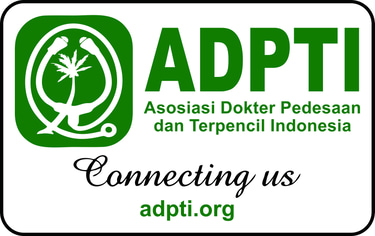Addressing the Obesity Epidemic: A Call to Action for Governments and Societies
adpti.org
1/6/20243 min baca


Obesity has emerged as one of the most pressing public health challenges of the 21st century. Its prevalence has tripled in many countries of the WHO European Region since the 1980s, with alarming rates of increase, especially among children. The consequences of obesity are far-reaching, causing not only physical disabilities but also significant economic burdens on healthcare systems. To combat this epidemic, concerted efforts are required from both societies and governments.
The Role of National Policies
National policies play a crucial role in addressing the obesity epidemic. They should focus on creating an environment that promotes healthier lifestyles and empowers individuals to make informed choices. One key aspect is to encourage and provide opportunities for greater physical activity. This can be achieved through the development of infrastructure that supports active transportation, such as pedestrian-friendly streets and cycling lanes. Additionally, policies should promote the integration of physical activity into daily routines, such as encouraging workplace wellness programs and promoting active play in schools.
Another important aspect of national policies is improving the affordability, availability, and accessibility of healthy foods. This can be achieved through measures such as subsidies for fruits and vegetables, restrictions on marketing unhealthy foods to children, and the implementation of nutrition labeling on food products. By making healthy food options more affordable and easily accessible, individuals are more likely to make healthier choices.
Furthermore, national policies should emphasize the importance of collaboration and involvement of different government sectors, civil society, the private sector, and other stakeholders. Obesity is a complex issue that requires a multi-sectoral approach. Governments should work together with various stakeholders to develop comprehensive strategies that address the social, economic, and environmental determinants of obesity. This can include partnerships with food manufacturers to reformulate products and reduce their calorie content, collaborations with schools to promote healthy eating habits, and engagement with healthcare providers to ensure effective prevention and treatment programs.
Preventing Childhood Obesity
Childhood obesity is a particularly concerning aspect of the epidemic. The numbers of children affected by obesity continue to rise at an alarming rate, posing significant long-term health risks. Governments and societies must prioritize the prevention of childhood obesity through targeted interventions.
One effective approach is to promote healthy eating habits from an early age. This can be achieved through educational campaigns that raise awareness about the importance of a balanced diet and the risks of excessive sugar and fat consumption. Schools play a crucial role in this regard, as they can provide nutritious meals and promote healthy food choices through vending machine policies and school canteen guidelines.
Physical activity is also essential for the prevention of childhood obesity. Governments should ensure that physical education is a mandatory part of the school curriculum and provide opportunities for extracurricular activities that promote active play. Additionally, creating safe and accessible spaces for children to engage in physical activity, such as parks and playgrounds, is crucial.
The Power of Community Engagement
Addressing the obesity epidemic requires the active participation of communities. Governments should encourage community engagement through the establishment of local initiatives and programs that promote healthy lifestyles. This can include community gardens, walking groups, and cooking classes that teach individuals how to prepare nutritious meals.
Furthermore, governments should support and empower community leaders and organizations to take action against obesity. By providing resources, funding, and training, governments can enable communities to develop and implement their own solutions to the obesity epidemic. This bottom-up approach ensures that interventions are tailored to the specific needs and challenges of each community, leading to more effective and sustainable outcomes.
Conclusion
The obesity epidemic is a complex and multifaceted challenge that requires a comprehensive and collaborative response. National policies should prioritize the promotion of physical activity and the availability of healthy foods, while also fostering partnerships between different sectors and stakeholders. Preventing childhood obesity should be a particular focus, with efforts directed towards promoting healthy eating habits and increasing physical activity among children. Finally, community engagement is crucial in creating sustainable solutions to the obesity epidemic. By working together, governments and societies can make significant strides in curbing this public health crisis and improving the well-being of populations.
Inspired by https://www.who.int/europe/health-topics/obesity#tab=tab_2
